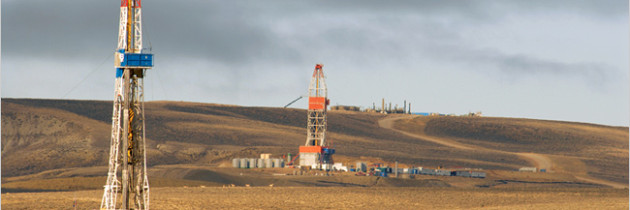Centrica eyes growth and welcome beyond UK
That must make a nice change. Even as Centrica, the owner of British Gas, continues to be classed as a public enemy in the UK, it is being greeted with open arms in Ireland. The consortium which it leads has been declared the preferred bidder for Bord Gáis Energy and it has been hailed as an “international strategic investor”. It may have been Irish government relief talking at having got the deal away, at an enterprise value of up to €1.12bn. Still, it suggests that Centrica’s hopes of investing in the Irish oil and gas industry will get a fair hearing.
Over in the UK, meanwhile, the group has offloaded to Dong Energy its stake in the Race Bank wind farm off the Norfolk coast. It seems that spending the better part of a decade getting consent for the project to go ahead, only to discover that it would not qualify for a government transitional subsidy just didn’t cut it.
It all boils down to the need for growth.
The UK is a mature market – British Gas has more than 15m residential customers – and has added political risk. So, Centrica has stepped back. Early this year, it said it would not take part in building nuclear reactors in the UK. Since then it has said it would not build any UK gas plants for at least four years and has cancelled plans to build two gas storage facilities.
Instead, its focus is expansion in North America. Its contribution to competition has been welcomed by regulators and customers there, it notes pointedly.
British Gas means Centrica will remain a substantial British presence. But the worries about UK energy politics and doubts about growth that have contributed to the fall of more than 10 per cent in the share price over the past six months, will mean its strategic priorities lie elsewhere.
Myners’ delicate mission
For his review of corporate governance at the Co-operative Group, Lord Myners will need all the sophistication that seemed to desert him when, as a newbie Treasury minister, he did not prevent Fred Goodwin being awarded a £703,000 annual pension.
Indeed, if it would reassure the 19 current directors of the Co-operative Group, the hedge fund chairman and former boss of Marks and Spencer should wear a brown suit and carry a copy of The Guardian, as he plays the Labour card.
From his perch as the group board’s first senior independent director, Lord Myners’ mission is a delicate one. The easier part is devising a new governance structure. Nationwide Building Society, with its mix of four executives and seven non-execs offers one starting point.
The trickier part will be persuading the existing members that their role needs drastic trimming. The group already plans to appoint two further non-executives, but whatever skills and experience they bring will be of limited value if the professional non-execs are consistently outvoted by the 14 elected delegates and the five heads of larger regional co-ops.
Whatever the solution, it must genuflect to the Co-op’s democratic structure. Perhaps there could be a new national committee comprising those who currently qualify to be directors, which could send representatives to the board.
There may be some old guard feelings lurking in the Co-op that blame its difficulties solely on the disastrous acquisition of Britannia Building Society. Yet the very act of appointing Lord Myners shows that the board knows it needs urgent change. That is the spirit in which they should consider what he says.
A problematic pipeline
I blame the clients. John Wood Group remains a conservatively-run oil services company, whose management has shown no sign of being less able this week than last. But 10 per cent came off the group’s share price when it had to warn that weaker demand and project delays would hit its engineering division in 2014.
This is not the first sign that the sector is experiencing tremors and that may partly explain the severity of the reaction. Wood Group voiced some milder concerns in August, and received an 8 per cent share price drop for its pains. The shares also dipped in late November when the Aberdonian’s Australian rivalWorleyParsons warned on earnings.
Although engineering typically accounts for 30 per cent of revenues and is the group’s highest-margin business, at least Wood Group can also point to brighter prospects. These are in its PSN division, which maintains clients’ working assets and is supported by exposure to US onshore shale. So, for 2014 overall, the group should continue to make progress.
At 718p, Thursday’s closing price marked a 12-month low for the group, leaving it trading on a forward p/e of about 14 times. In a neighbourhood built on a faultline, macroeconomic seismic activity can afflict even the sturdiest of properties.
Fonte: ft.com



